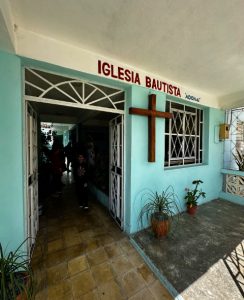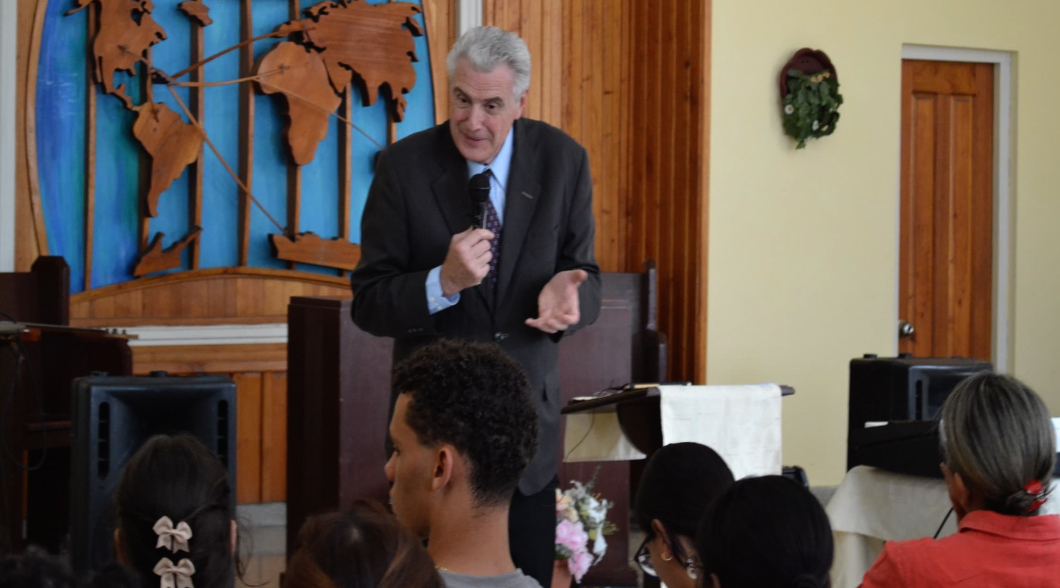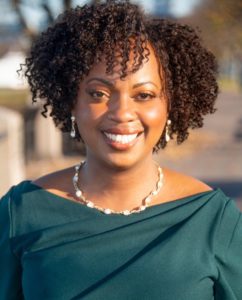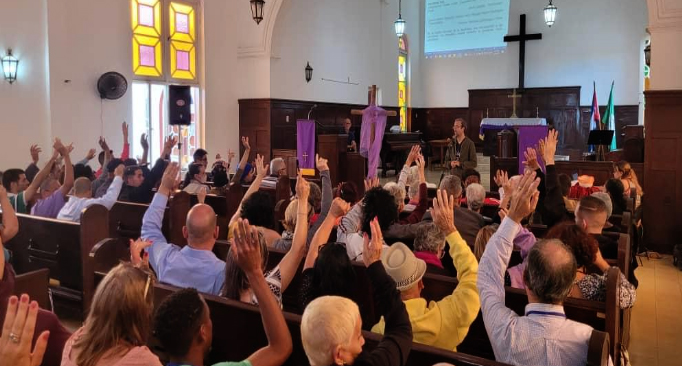Four Cuban Baptist groups are launching a medical ministry both to address the nation’s health care crisis and to help overcome theological differences that divide them, according to an official with the Baptist World Alliance.
BWA President Tomás Mackey and BWAid Director Marsha Scipio recently visited the island nation to inspire the organizations to seek unity to better serve and evangelize a population beset by appalling economic conditions.

Entrance to Cuban church
“There has been tension between the conventions for several years and we wanted to encourage them to come together to start having conversations so they can begin to address together some of the challenges facing the churches and the communities they serve,” Scipio said.
She identified the BWA organizations as the Fraternity of Baptist Churches, the Free Will Baptist Convention, the Western Baptist Convention and the Eastern Baptist Convention. Altogether, they represent more than 77,000 members in about 1,340 congregations.
During two hours of talks in Havana, convention leaders acknowledged their differences in church teachings and practices, including women in ministry, then agreed to form a health coalition to seek medicine and medical supplies from international sources, including through existing relationships with the Cooperative Baptist Fellowship and Canadian Baptist Ministries, Scipio said.
The coalition’s goal is to distribute medicines to local churches for use by members and neighbors in the community. “They just agreed to do that on their own. After the discussion they wanted to plant two trees to celebrate the rebirth of unity between the conventions.”
Convention leaders also agreed that attempting to provide social services is an effective way to build relationships with nonbelievers in one of the worst economies in decades, Scipio said.

Tomas Mackey preaching in Cuba
The Associated Press reports average incomes in Cuba range from $16 to $23 a month, and 2 pounds of powdered milk costs as much as $8. COVID-19 and U.S. sanctions are blamed for the economic downturn that includes an inflation rate of nearly 50% over the last three years.
“It’s difficult to evangelize in that context, given the poverty and illness. People are struggling to feed their families and children are dying from asthma,” Scipio said. “And churches are struggling, too — they have to get government permission to build a new church or to remodel, and that’s a big challenge for them. So, this is about working together to meet the needs of others and give them opportunity to share Christ.”
The migration spurred by economic hardship hurts membership levels in many congregations, Scipio added. “Families are trying to find ways to survive, and one of those ways is to send one or two family members to Nicaragua or Mexico in hopes of getting into the U.S. to get jobs and send money back to Cuba. As a result, whole families are leaving the church in search of better lives in other countries.”

Marsha Scipio
But Scipio said there also are encouraging signs, including the role of women in the Fraternity of Baptist Churches of Cuba, or Fraternidad de Iglesias Bautista de Cuba.
“It was very positive to see women in leadership and to see how many churches are headed by women in that convention,” she said. “That was real positive. The other conventions don’t allow women to serve in leadership.”
It also was uplifting to witness the day-to-day dedication of Cuban Baptists serving their communities materially and spiritually, she added. “People are tired, but there is definitely a sense that there is still hope and that this hope can exist alongside suffering.”
Now that the conventions are working together, BWA will hold Zoom meetings with four groups and international partners to coordinate deliveries of medicine and other aid.
“People don’t have the basic things for survival, so we will work to galvanize our partnerships to send help,” Scipio said. “That means working with Canadian Baptist Ministries, CBF, which has projects in Cuba, the Alliance of Baptists and other Baptist bodies. We all need to walk alongside our Baptist brothers and sisters in Cuba.”
Mackey added that BWA has, in turn, been enriched by worshiping and meeting with Baptist churches in Cuba.
“They possess countless talents and an admirable inner strength that allows them to carry out their mission amidst numerous and profound difficulties with light, water, medications, housing, public transportation, among other things, difficulties that affect the entire Cuban people, and obviously a complex issue with religious freedom. We have much to learn from our Cuban brothers and sisters and their people, and likewise much to accompany them in their commitment and challenges.”
Related articles:
What Bob Menendez, Donald Trump, Joe Biden and immigration have to do with Cuba’s troubling times | Analysis by Stan Hastey
Biden administration urged to remove Cuba from list of state sponsors of terrorism
Cuban government clamps down more on religion
How to read the Cuban street protests in light of U.S.-Cuba history | Analysis by Ken Sehested
Understanding Cuba and the United States through July 11 and Jan. 6 | Opinion by Stan Dotson

